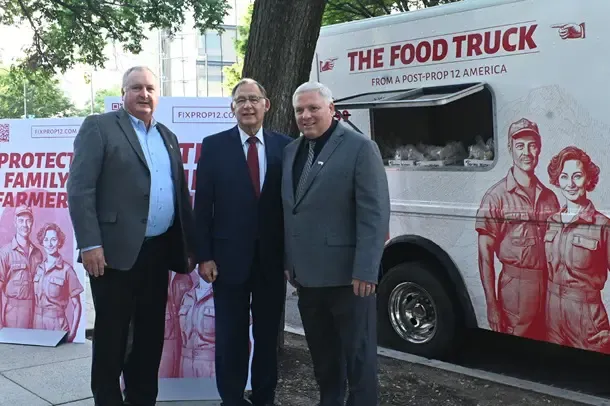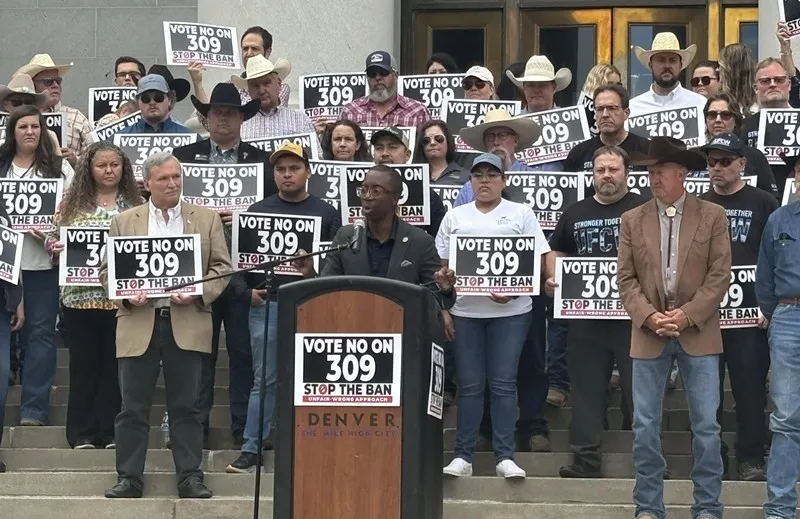The sad reality for America’s cows, pigs, and chickens is that it doesn’t matter much who’s running the country. Democratic and Republican administrations alike have long favored factory farmers over farmed animals.
President Obama promised to take the USDA out of the hands of “big agribusiness” — and gave it instead to the governor of the biggest factory farming state, Tom Vilsack of Iowa. President Trump promised to drain the swamp — and then assigned the USDA transition to a swamp dweller whose prior gig was trolling animal advocates. President Biden didn’t promise much — and delivered even less when he reappointed Vilsack, who had spent the intervening years lobbying for Big Dairy.
The campaigns in this year’s election didn’t promise much change either. Neither presidential candidate discussed animal welfare, though Trump was reportedly “fired up” about the death of Peanut the Squirrel. Their running mates got a little closer, but not in a good way: Gov. Tim Walz staged a photo-op with a factory-farmed calf while Sen. JD Vance derided “disgusting fake meats” (though he had kinder words for Indian vegetarian food).
Still, look below the Presidency, and the US election results could impact farmed animals in at least five major ways…
1. The EATS Act is more likely to pass Congress
The biggest legislative threat to farmed animals is the EATS Act, which would stop states from regulating the sale of meat based on how it was produced elsewhere. This innocuous-sounding language would wipe out all meaningful state farm animal welfare laws, like California’s Prop 12. The pork industry has savvily lobbied to sneak the Act into the Farm Bill, a pork-barrel bonanza that usually passes Congress.
This isn’t a strictly partisan issue. Plenty of Democratic and Republican representatives oppose the EATS Act, as does the current frontrunner to be Trump’s agriculture secretary, Sid Miller. (By contrast, Biden’s agriculture secretary, our friend Tom Vilsack, loudly supports it.)
But the pork industry has the politicians who matter: those who run the House and Senate Agriculture Committees, which draft the bills. They’ve already gotten the Act into the House version of the Farm Bill. Now they’ll likely get it into the Senate bill too, thanks to the probable new chair of the Senate committee, Sen. John Boozman, who they recently schmoozed at a lobbying event for a “post-Prop 12 America.”
There’s still hope. The Republicans’ slim majority in the House means they can only pass the Farm Bill with the support of the Freedom Caucus or House Democrats, both of whom mostly oppose the EATS Act. But the fight just got harder.

2. The USDA may not favor big agribusiness as much
In the coming days, President-elect Trump is likely to name a nominee to run the USDA. There’s a surprisingly stark choice between two camps of potential nominees.
The first camp supports business as usual. This camp includes run-of-the-mill candidates like former House Ag Committee Chair Mike Conaway and cattle rancher Charles Herbster. Others in this camp have uniquely anti-animal convictions. One leading candidate, agribusiness executive Kip Tom, wrote an op-ed attacking Prop 12 and even local animal rights initiatives in Denver and Sonoma (more on those below). Another, former animal pharma executive Ted McKinney, called it “a big myth” that US animal welfare standards are worse than European ones (they are) and derided undercover investigators as “very nefarious” (they’re less nefarious than animal pharma executives).
But there’s also a second camp, who is skeptical of big agribusiness and sometimes even factory farms. The leading contender in this camp, Texas Ag Commissioner Sid Miller, recently bemoaned that “family farms are closing or selling to commercial factory farms at an alarming rate.” Another, Rep. Thomas Massie, has encouraged consumers to buy from local farms, in part because “it’s a lot more humane for the animals.” A third, Tulsi Gabbard, is an ethical vegan committed to the extinction of factory farms (which is why she probably won’t get the role).
And then there’s Robert F. Kennedy Jr. Now better known for hating vaccines, he hates factory farms too: he led a group fighting them for 20 years and once said that “pig factory farms are more dangerous for our lifestyle and democracy than Osama bin Laden and global terrorism.” I doubt his recent claims that he’ll be “inside” the Trump USDA, but agribusiness giants are reportedly spooked.
3. Alternative proteins could see less regulation — or much more
The Republican party can’t agree on how to regulate alternative proteins. The “national libertarian” wing of the party wants to get the government out of the way. One of Trump’s closest allies, Sen. Mike Lee (R-UT), introduced a bill to stop restrictions on the labeling of plant-based milk and meat. Another close ally, Vivek Ramaswamy, who was just named to co-lead a new Department of Government Efficiency with Elon Musk, has strongly opposed excessive government regulation of alternative proteins.
But other Republicans want to drag alternative proteins into the culture wars. Gov. Ron DeSantis (R-FL) banned cultivated meat in his state. Robert F. Kennedy Jr. (yes the same one who hates factory farms) also hates cultivated meat. And Elon Musk has speculated that advice to eat less meat is a conspiracy of plant-based meat makers (I suspect they wish they were this powerful).
The outcome depends mostly on who gets to run the Food and Drug Administration, which largely regulates alternative proteins. A libertarian Commissioner might reduce the red tape for cultivated meat and other novel proteins to get to market, or scrap the silly new labeling rules on plant-based milks. A populist Commissioner might delay cultivated meat approvals, impose more onerous labeling rules, or even try to nationalize Florida’s ban on cultivated meat.
4. Abolitionist ballot initiatives look less promising
Farmed animals mostly weren’t on the ballot last week. The exceptions were in Denver, Colorado, and Sonoma County, California, where activists proposed ballot initiatives to ban slaughterhouses and large-scale animal farms respectively. Both measures lost resoundingly: 36%-64% in Denver and 15%-85% in Sonoma County.
This wasn’t surprising. Both measures were brought by grassroots activists, who were outspent by six-to-one and eight-to-one respectively. Their opponents united farmers, unions, and even the local Democratic Party against them. These coalitions easily painted the measures as extreme (the Sonoma measure banned even large pasture-based farms) and ineffective (the slaughterhouse and farms would likely just have moved elsewhere).
But I still think we can learn from this. Ballot initiatives on farm animal welfare remain very popular: all have won in the last three decades. Some activists hoped to be bolder, drawing inspiration from survey results suggesting that almost half of Americans supported banning factory farms and even slaughterhouses. Rethink Priorities had already found that, when presented with arguments for and against such bans, support for them plunged to just 8-20%. The election results largely bear that out: most voters seem ready for reform but not abolition.

5. It will be harder to keep attention on farmed animals
The last time Trump was President, the media paid even less attention to factory farming than usual, as it fixated on the latest Trump controversy. So too did some advocates and funders. Their collective attention flitted from new crisis to crisis. The ongoing moral crisis of the torture of billions of animals often seemed not to qualify.
My greatest concern for our movement in the next four years is not any new law, agency rule, or executive order. Instead it’s that we lose our focus on farmed animals. We can only marginally influence the actions of the new Congress and Administration — and even the best possible wins there won’t help animals much. But we can control how we spend our time and our money.
Our fight will not be won or lost in just the next four years, in just federal politics, or in just the United States. Instead, it will take decades of sustained work across multiple arenas: corporate policies, technological innovation, movement-building, and more. This work doesn’t depend on any election results — it depends on you. And the work you do today will long outlast any presidential administration.
